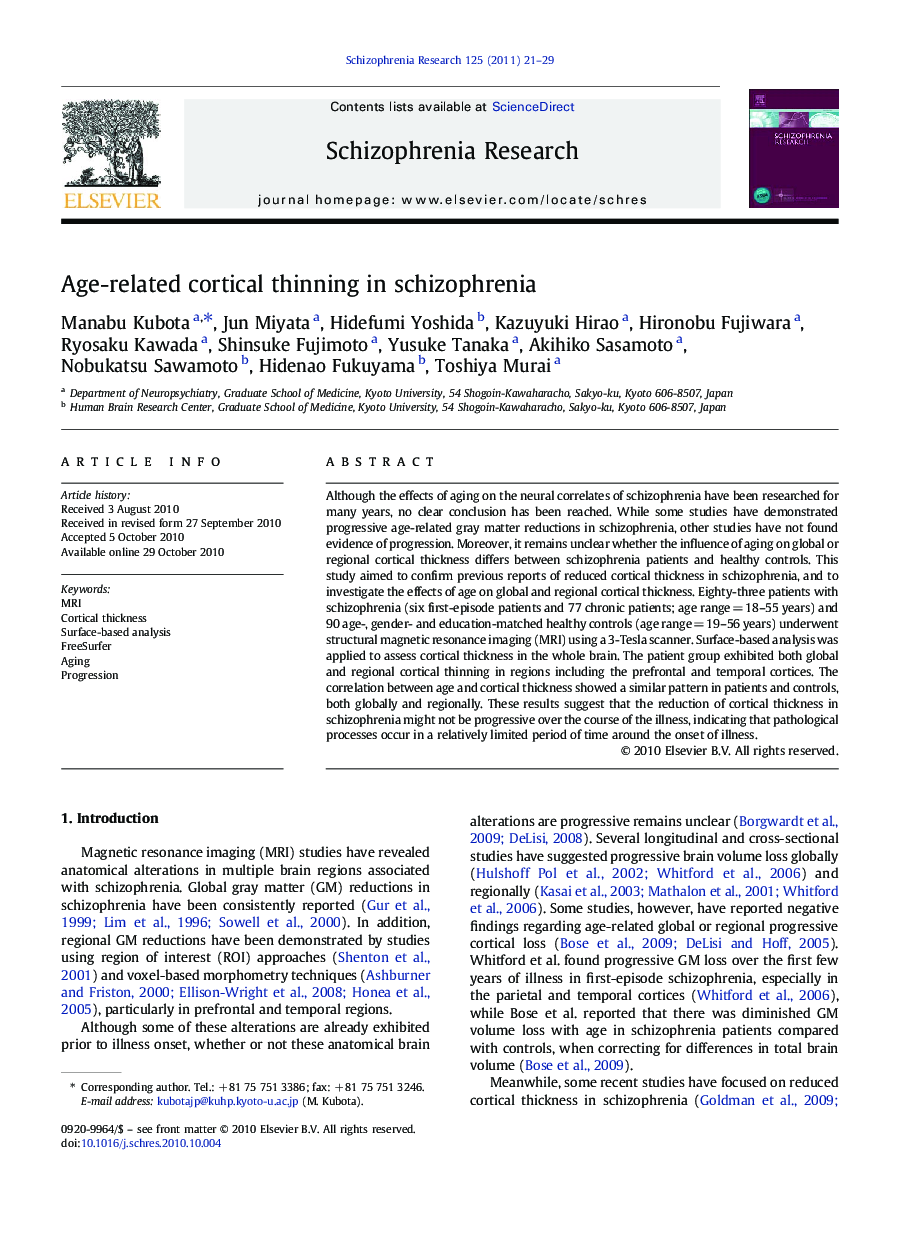| Article ID | Journal | Published Year | Pages | File Type |
|---|---|---|---|---|
| 339210 | Schizophrenia Research | 2011 | 9 Pages |
Although the effects of aging on the neural correlates of schizophrenia have been researched for many years, no clear conclusion has been reached. While some studies have demonstrated progressive age-related gray matter reductions in schizophrenia, other studies have not found evidence of progression. Moreover, it remains unclear whether the influence of aging on global or regional cortical thickness differs between schizophrenia patients and healthy controls. This study aimed to confirm previous reports of reduced cortical thickness in schizophrenia, and to investigate the effects of age on global and regional cortical thickness. Eighty-three patients with schizophrenia (six first-episode patients and 77 chronic patients; age range = 18–55 years) and 90 age-, gender- and education-matched healthy controls (age range = 19–56 years) underwent structural magnetic resonance imaging (MRI) using a 3-Tesla scanner. Surface-based analysis was applied to assess cortical thickness in the whole brain. The patient group exhibited both global and regional cortical thinning in regions including the prefrontal and temporal cortices. The correlation between age and cortical thickness showed a similar pattern in patients and controls, both globally and regionally. These results suggest that the reduction of cortical thickness in schizophrenia might not be progressive over the course of the illness, indicating that pathological processes occur in a relatively limited period of time around the onset of illness.
